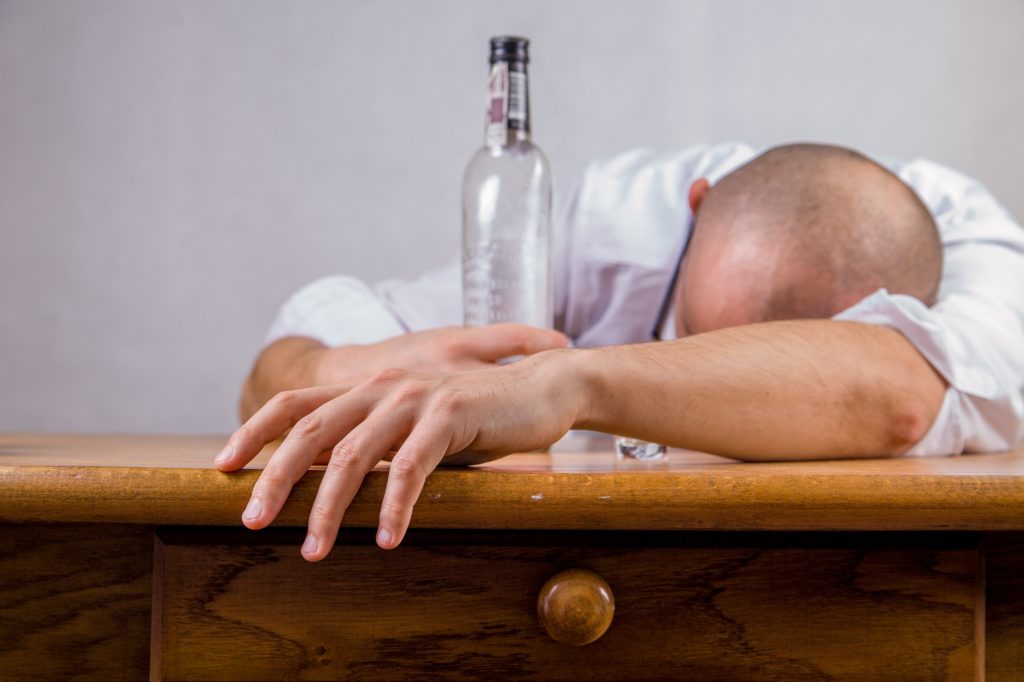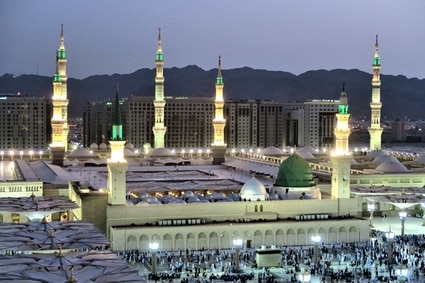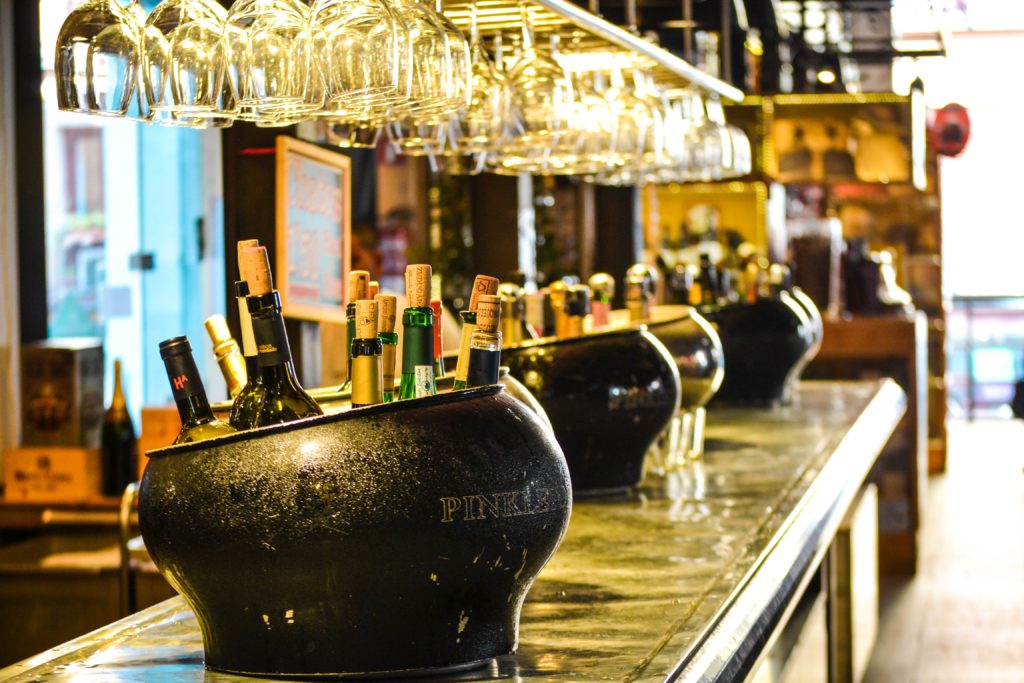Aizaz Khan, Missionary, Canada
The names “Manhattan” and “Wall Street” tell a fascinating story. According to some Indigenous-American accounts, when Henry Hudson was exploring the region in 1609, he met some Natives to whom he offered alcohol – later admitting that he did so “in order to make a trial of their hearts”. The Natives refused, saying they abhorred the smell of the liquid. A warrior among them, not wanting to appear ill-mannered in front of strangers, took the drink and gulped it down in one. He immediately collapsed, but then rose to his feet and exclaimed that the beverage was magnificent. His tribesmen followed suit, drank and became intoxicated. The place of this occurrence was called Manhachtanienk, “the island of intoxication”, later known as “Manhattan”.
As the story goes, the Dutch eventually took possession of Manhachtanienk and established a fort there, the southern limit of which was marked by a wall that would serve to protect them from the Natives. The location of this wall is what we know today as “Wall Street”.
Stories like this are plenty, but there is no doubt that alcohol and its consumption are woven into the very fabric of the society we live in. Humanity’s unquenchable thirst for drinking and intoxication is timeless and has shaped human civilisation itself – from art and culture to policy and even religion.
A sobering dilemma
It should be of no surprise, then, that when governments issued lockdown orders in the midst of Covid-19, shops that sold alcoholic beverages were counted in the category of “essential services” and were protected under the same regulations that allow businesses such as supermarkets and pharmacies to operate.
As a result, in the wake of the coronavirus pandemic, US alcohol sales spiked 55% in the week ending 21 March. Online alcohol sales were up 243%, with alcohol delivery services seeing growths of over 1,500% in new customers. According to a recent survey carried out by alcohol.org, one in three respondents said they are likely to increase alcohol consumption in isolation, with 36% of men and 26% of women saying they currently drink during working hours.
Already considered recession-proof, the past several weeks have validated the alcohol industry’s title as “pandemic-proof” as well. Sustaining more than 4.4 million jobs and generating almost $70 billion dollars in annual tax revenue in the US alone, it is no wonder why such an industry would be considered so essential during a pandemic – surely this has nothing to do with that fort, the southern limit of which was marked by a wall.
A more regrettable reason presented for the dire need of alcohol as an essential service is people’s dependence on it (i.e. alcoholism). Medical officers insist that the suspension of sales of alcohol would lead to significant health consequences for those who suffer from alcohol dependence. To put this into perspective, a study published in 2017 reported that a staggering one in eight Americans (that’s at least 41 million people) meet diagnostic criteria for alcohol use disorder. (JAMA Psychiatry, August 2017)

Alcohol dependence is not a new phenomenon. Prohibition in the US (1920-1933) is a classic, textbook example that demonstrates the measure of society’s dependence on alcohol. Known as one of the most catastrophic failures in the history of Colonial America, it is said that with prohibition, Americans were all set for “a wild drinking spree that would last thirteen years, five months, and nine days.” In fact, over the thirteen years of prohibition, Americans produced 700 million gallons of beer each year in the confines of their own homes.
During Covid-19, we are seeing examples reflective of this dependence in the few cities of the world that have banned all sales of alcohol – people are turning to the black market and bootleggers to obtain alcohol while others are turning to hard drugs as an alternative.
A proposed solution
Considering our current circumstances, it is imperative that society explores a solution to the greater pandemic that manifests itself to us in the form of alcoholism. There is a proposition, one that will require us to travel from Manhattan all the way to a place called Medina, the city of the Prophetsa.

A thorough study of history and prohibition movements tells us that in all of human history, just one single instance is found in which alcohol prohibition was successfully implemented. This revolution took place in 7th century Arabia and the movement in question was led by the Holy Prophet Muhammad, peace and blessings of Allah be on him.
Through his practice, presence, teaching and spiritual power, the Prophet Muhammadsa first changed the prevailing mentality and perceptions surrounding the act of alcohol consumption. Once this was achieved and the time came to forbid it completely, prohibition was instated in a slow and gradual manner. Three verses of the Holy Quran detail this revolutionary process:
- First, the believing Muslims were simply discouraged from drinking wine, drawing to attention the fact that there was greater evil than benefit in intoxicants. (Surah al-Baqarah, Ch.2: V.220)
- Then, Muslims were forbidden to pray whilst intoxicated (Surah al-Nisa, Ch.4: V.44). The fact that there were five prayers spread throughout the day, from before sunrise to after sunset, encouraged sincere Muslims to shun the habit.
- Finally, alcohol consumption was deemed an abomination of Satan’s handiwork and was definitively and strictly forbidden (Surah al-Maidah, Ch.5: V.91-92).
Such a radical change in attitudes prior to the implementation of scriptural injunctions is not found in any other religion except Islam. From the time Prophet Muhammadsa received his first revelation, it took between 16 to 18 years of education, patience, prayers, and gradual restrictions for Islamic prohibition to be fully instated. And it worked!
When Prophet Muhammadsa announced that alcohol had been definitively forbidden, Muslims immediately poured out whatever they had left in stock, to the point that alcoholic drinks were seen flowing through the streets of Medina. (Sahih al-Bukhari)
It must be mentioned here that Islam recognises that its strategy of prohibition, if implemented suddenly instead of gradually, would be just as effective as that of prohibition in America. Hazrat Aishara, wife of the Holy Prophetsa, narrates:
“When people embraced Islam, the verses regarding legal and illegal things were revealed. If the first thing to be revealed was, ‘Do not drink alcoholic drinks,’ people would have said, ‘We will never leave alcoholic drinks.’” (Sahih al-Bukhari)
In essence, the Holy Prophet Muhammadsa presented the world with a working model demonstrating how a prohibition movement could be effective and what to avoid when trying to replicate it. In any given scenario, the world will eventually come to realise the beauty and efficacy of Islam’s strategy to combat alcoholism. As the Promised Messiah, peace be upon him, once said:
“Many times, it happens that if a certain thing is not widespread enough, its effects cannot be known. Take for instance the prevalence of alcohol nowadays in places like Europe – if this prevalence did not occur, then how could its negative effects become manifest, from which the world today seeks refuge? And by its prevalence, the beauty of Islam and the Messenger of Islamsa is revealed, who stopped this vice once and for all and deemed it unlawful.” (Malfuzat, Vol. 3, pp. 405 [2010])



MASHALLAH,very informative article,JAZAKALLAH KHER
An excellent piece masha’Allah! The writing is consistently engaging and the thread is seamless. A joy to read and learn from. Allahumma Zid fa Zid!
Jazakallah. I appreciate this article and the hard evidence provided with it. I pray world leaders use the perfect wisdom of the Holy Prophet(SAW) to stop alcoholic beverage consumption for good. InshAllah.
A very informative article. I enjoyed reading it and gained new knowledge on this topic. Jazakamullah